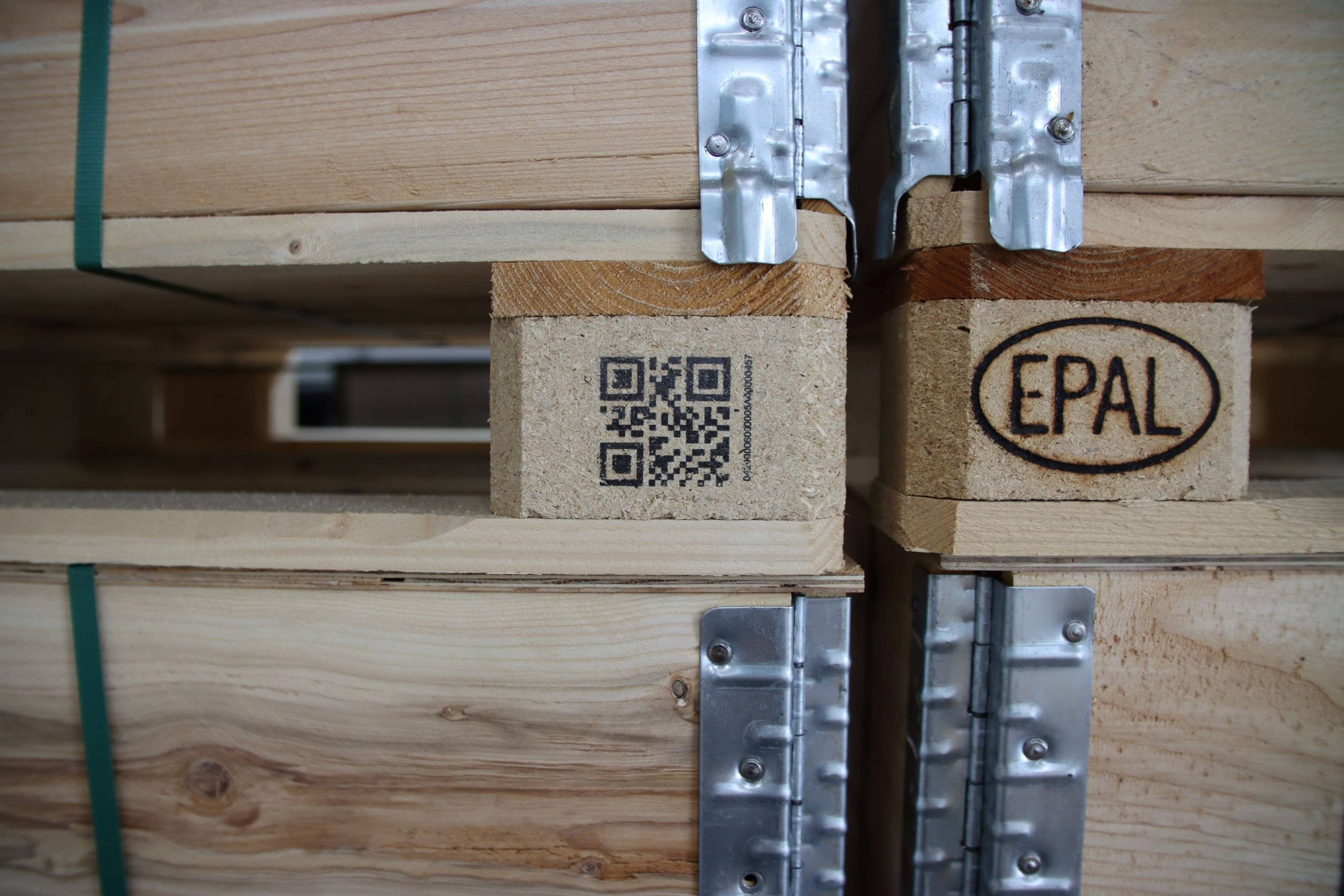EPAL Innovation Lab: investigation of European network coverage for LPWAN technology
The European Pallet Association e.V. (EPAL), together with the Fraunhofer Institute for Material Flow and Logistics IML, and DACHSER, an international logistics provider, has been investigating the current status of network coverage for various LPWAN technologies in Europe.
In the future, load carriers such as EPAL Euro pallets and vehicles, robots and machines involved in logistics will communicate directly with each other and exchange information and data. The precondition for this Internet of Things (IoT) is highly functional wireless technology with low energy consumption and a wide range (LPWAN: Low-Power, Wide-Area Networks) as well as seamless network coverage. The subject of the investigation was therefore the network coverage of current LPWAN technologies such as NB-IoT, LTE-M and Sigfox and the classic second and third generation mobile phone networks (2G/3G) by way of comparison.
50 EPAL Euro pallets were each fitted with five different trackers from the five different wireless technologies (NB-IoT, LTE-M, Sigfox, 2G, 3G). The EPAL Euro pallets were then transported by DACHSER across 24 countries in Europe. After one month, a total distance of 148,000 kilometres, and the transmission by wireless of more than two million data packages, the EPAL Euro pallets were returned to Fraunhofer IML’s headquarters in Dortmund. The trackers have since been analysed and the results are now available:
There are already very good LPWAN technology wireless networks in many European countries which offer a good communication platform for IoT devices such as EPAL Euro pallets with trackers. However, there are still deadspots in the LPWAN networks which means the current recommendation is a combination of NB-IoT, LTE-M, Sigfox and the classic mobile phone networks (2G - 4G). In spite of this, according to the Fraunhofer Institute IML, the future of connectivity of IoT devices clearly lies in the use of LPWAN technologies.
Michael Brandt, Head of Logistics & Innovation: “The EPAL Euro pallet is the cornerstone of goods and transport logistics in Europe. We are therefore preparing to serialise EPAL Euro pallets with QR codes with an option for installing trackers. The joint project with Fraunhofer IML and DACHSER is supplying us with valuable information which we will be able to take into consideration as we move this project forward.”
EPAL has been following various projects on the digitalisation of EPAL load carriers since 2018. Together with users of EPAL Euro pallets and EPAL licensees, EPAL is working on solutions for the digital future of logistics.
EPAL would like to thank both Fraunhofer IML and DACHSER for their outstanding collaboration.
Other press releases on the study:
https://www.iml.fraunhofer.de/de/presse_medien/pressemitteilungen/tracker-studie.html
https://www.dachser.de/de/mediaroom/Europaweite-Studie-zu-LPWAN-Technologien-15411

